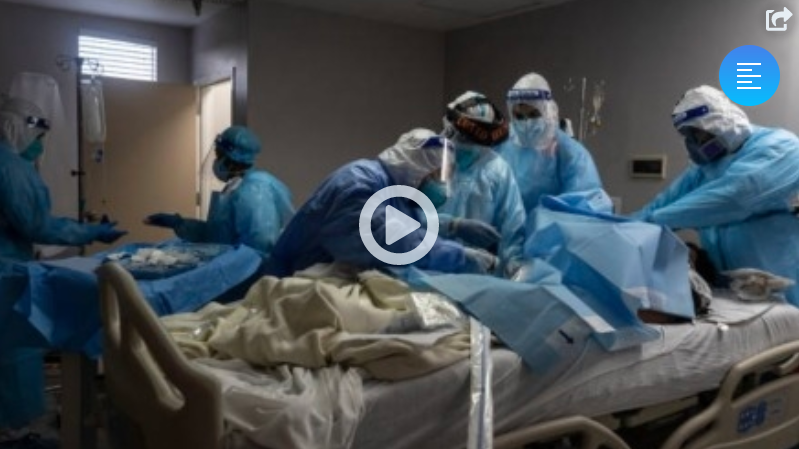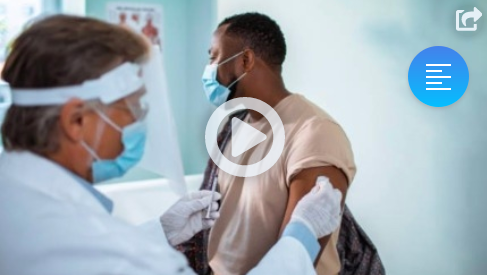
US Nears Average of 200,000 Daily COVID-19 Cases. Experts have attributed the U.S.’s recent surge in cases to “behavior and cold weather.”. People are going indoors, they’re not minding the three W’s, Health and Human Services secretary Alex Azar, via Fox News. Our advice is always the same. Wash your hands, watch your distance, wear face coverings. , Health and Human Services secretary Alex Azar, via Fox News. Experts have been anticipating a rise in cases due to the increase of indoor gatherings during the holidays. Hospitalizations have also hit a record high, with 101,487 patients being admitted with the virus as of Sunday
By Tim Darnell
The U.S. surpassed 15 million confirmed coronavirus cases Tuesday, further solidifying its position as the world’s leader in not only cases but also virus deaths.
As of Tuesday afternoon, Johns Hopkins University’s School of Medicine reported 15,019,092 cases in the U.S., far more than India’s 9.7 million, the second most in the world. More than 284,000 U.S. deaths have been recorded.
Deaths from COVID-19 in the U.S. have soared to more than 2,200 a day on average, matching the peak reached last April.
Cases per day have eclipsed 200,000 on average for the first time on record, with the crisis all but certain to get worse because of the fallout from Thanksgiving, Christmas and New Year’s. Virtually every state is reporting surges just as a vaccine appears days away from getting the go-ahead in the U.S.
On Monday, Georgia surpassed yet another milestone in the coronavirus pandemic, topping 9,000 deaths in the state, as a long-predicted fall surge continued its grip on the nation. Overall, the state agency has recorded more than 448,000 cases in Georgia since the pandemic began.
Globally, there have been more than 67 million confirmed coronavirus cases, with a worldwide death toll of more than 1.5 million.
President Donald Trump will reportedly sign an executive order Tuesday that will give U.S. citizens first priority to a coronavirus vaccine before the government begins aiding other nations.
A vaccine summit is scheduled to be held Tuesday at the White House. Senior administration officials told Fox News on Monday that Trump will reemphasize the “priority has been an America First approach” during the event.
The order will direct the secretary of Health and Human Services, Alex Azar, to prioritize distribution of the vaccines to Americans. The order will also be accompanied by a framework for international access to COVID-19 vaccines.

When will the COVID-19 vaccine be available?
A Food and Drug Administration advisory panel is scheduled to take up a request Thursday to authorize emergency use of Pfizer’s vaccine. Vaccinations could begin just days later, though initial supplies will be rationed, and shots are not expected to become widely available until the spring.
With the U.S. facing what could be a catastrophic winter, top government officials continue warning Americans anew to wear masks, practice social distancing and follow other basic measures.
Deaths per day have surged to an average of more than 2,160, a level last seen in April, when the outbreak was centered around New York. The number of Americans in the hospital with the coronavirus topped 100,000 for the first time during the last few days.

Hundreds of scientists say coronavirus is airborne, asks WHO to revise recommendations. Credit: AJC
Dr. Scott Gottlieb, a former FDA commissioner, warned on CBS’ “Face the Nation” that the U.S. death toll could approach 400,000 by the end of January. “As bad as things are right now,” he said, “they’re going to get a lot worse.”
The Centers for Disease Control and Prevention is recommending health care workers and nursing home patients get priority when the first shots become available.
Both Pfizer’s vaccine and a Moderna vaccine that will also be reviewed by the FDA later this month require two doses a few weeks apart. Current estimates project that a combined total of no more than 40 million doses will be available by the end of the year. The plan is to use those to fully vaccinate 20 million people.
Dr. Moncef Slaoui, head of Operation Warp Speed, the government’s vaccine development program, suggested on CBS that using those 40 million doses more broadly to reach 40 million people right away would be too risky, because of the possibility of manufacturing delays that could hold up the necessary second doses.
“It would be inappropriate to partially immunize large numbers of people and not complete their immunization,” he said.
But Gottlieb said he would push out as many doses as possible, taking “a little bit of a risk” that the supply would catch up in time for people to get a second dose.
Both shots — one made by Pfizer and BioNTech, the other by Moderna and the National Institutes of Health — are so-called messenger RNA, or mRNA, vaccines, a brand-new technology. Billions in company and government funding certainly sped up vaccine development — and the unfortunately huge number of infections meant scientists didn’t have to wait long to learn the shots appeared to work.
The U.S. also continues approaching 200,000 reported coronavirus cases per day, as national health officials continue warning Americans not to let their guard down during this latest, long-predicted fall pandemic surge.
Read the original story on AJC.com.











